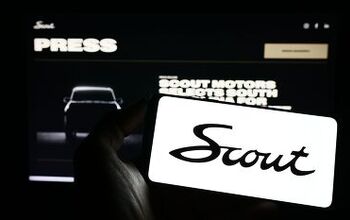Voters in Seven Cities Reject Photo Enforcement
Voters in eight cities in three states cast ballots Tuesday to decide whether red light cameras and speed cameras should be used in their communities. Seven of the races went against the use of photo ticketing.
The night’s first results came from Ashtabula, Ohio where 60 percent of residents approved an amendment to the city charter stating that the city “shall not use any traffic law photo-monitoring device” unless a police officer personally issues the citation.
“I feel that the citizens of Ashtabula stood up,” Mark Leatherman, chairman of the Citizens of Ashtabula Camera Committee told TheNewspaper. “We had the police chief attacking and fighting citizens on this issue on Facebook. We stuck to our guns to get this passed.”
Leatherman and fellow volunteers held twenty rallies in support of the ballot measure, ensuring that voters understood that a “yes” vote meant no more cameras. In Garfield Heights, officials were far more aggressive in pushing cameras. Voters in the city had struck down photo enforcement last year, but the city council proposed a charter amendment permitting photo monitoring devices “in school zones and/or park and recreation areas only.” This idea found even less support than the cameras received last year. Fifty-four percent opposed the school zone speed cameras.
Redflex Traffic Systems of Australia kicked in at least $108,000 to fund the Safe Roads Ohio front group to campaign for cameras in both Garfield Heights and South Euclid — the equivalent of $15 per vote. This compares to the unfunded effort in South Euclid to put a stop to the cameras, which won 55 percent of the vote.
In East Cleveland, local officials went to the most extreme lengths of any contest to date to badger voters into supporting cameras. Off-duty police officers, in uniform and with their police cruisers parked on the curb, were ordered to go door-to-door to convince residents to vote to return the cameras. Last month, Mayor Gary Norton mailed layoff notices to thirty-six cops and fourteen firefighters, claiming the city would have to fire them if it lost the photo ticketing revenue. The strong-arm tactics worked, as the city picked up 54 percent of the vote.
In Washington State, municipalities and vendors like American Traffic Solutions (ATS) turned to the courts in an attempt to keep anti-camera initiatives off the ballot. As a result, most of the measures appeared as “advisory” votes that allow the city council to make the final call on camera use. In Longview, 59 percent of voters approved Initiative Measure Number 1, which was submitted as a complete ban on cameras but was watered down into a requirement that camera use be subject to advisory votes. Residents split on two city-proposed measures that stated red light cameras and speed cameras would continue to be used until May 1, 2012. Voters also elected anti-camera initiative co-sponsor Mike Wallin to the city council over speed camera proponent Steve Moon.
“Local activists in cities throughout the state began asking us (me, Nick and Tiffany Sherwood of BanCams.com, and Alex Rion of Washington State Campaign for Liberty) to help them rid their communities of camera surveillance from those obnoxious ticketing cameras,” Washington initiative guru Tim Eyman said in a statement. “Across the political spectrum, the citizens are rebelling against the unholy alliance of government and corporations profiting off the citizens with their taxation-through-citation scheme. The legislature made a huge mistake when they allowed cities to get hooked on camera profits and to get in bed with sleazy red-light camera companies. Olympia better start cleaning up the mess or else the people are going to do it for them.”
In both Bellingham and Monroe, the votes were 65 percent against the use of cameras. Dayton, Texas voters rejected red light cameras by the largest margin of the night, 70 percent.
Automated ticketing has lost in 22 of 23 ballot contests. Last month, voters rejected cameras in Albuquerque, New Mexico. During the 2010 midterms, voters in Houston and Baytown, Texas as well as Garfield Heights, Ohio rejected red light cameras. The vote in Mukilteo, Washington was 70 percent against the cameras and 73 percent in Anaheim, California. In May 2010, 61 percent of Sykesville, Maryland voters overturned a speed camera ordinance. In 2009, eighty-six percent of Sulphur, Louisiana rejected speed cameras. The November elections included three votes: 72 percent said no in Chillicothe, Ohio; Heath, Ohio and College Station, Texas also rejected cameras. In 2008, residents in Cincinnati, Ohio rejected red light cameras. Seventy-six percent of Steubenville, Ohio voters rejected photo radar in 2006. In the mid-1990s, speed cameras lost by a two-to-one margin in Peoria, Arizona and Batavia, Illinois. In 1997, voters in Anchorage, Alaska banned cameras even after the local authorities had removed them. In 2003, 64 percent of voters in Arlington, Texas voted down “traffic management cameras” that opponents at the time said could be converted into ticketing cameras.
[Courtesy: Thenewspaper.com]
More by The Newspaper
Latest Car Reviews
Read moreLatest Product Reviews
Read moreRecent Comments
- Formula m For the gas versions I like the Honda CRV. Haven’t driven the hybrids yet.
- SCE to AUX All that lift makes for an easy rollover of your $70k truck.
- SCE to AUX My son cross-shopped the RAV4 and Model Y, then bought the Y. To their surprise, they hated the RAV4.
- SCE to AUX I'm already driving the cheap EV (19 Ioniq EV).$30k MSRP in late 2018, $23k after subsidy at lease (no tax hassle)$549/year insurance$40 in electricity to drive 1000 miles/month66k miles, no range lossAffordable 16" tiresVirtually no maintenance expensesHyundai (for example) has dramatically cut prices on their EVs, so you can get a 361-mile Ioniq 6 in the high 30s right now.But ask me if I'd go to the Subaru brand if one was affordable, and the answer is no.
- David Murilee Martin, These Toyota Vans were absolute garbage. As the labor even basic service cost 400% as much as servicing a VW Vanagon or American minivan. A skilled Toyota tech would take about 2.5 hours just to change the air cleaner. Also they also broke often, as they overheated and warped the engine and boiled the automatic transmission...


































Comments
Join the conversation
I cant stand these electronic ticketing devices to think 50% of the ticket goes straight out of our country is mind-numbing. UP yours ATS please pack up all your crap and leave. Take down the ugly cameras and please let the door wack you in the _ _ _ on your way out! If you want to ticket people for running red lights then have a cop write the tickets, its not that hard, oh wait I forgot this is about money not jobs.
The city where I live, Redmond WA cancelled their contract with ATS a couple of weeks ago. The cameras will be turned off in January. They mailed out $800,000 of tickets, after all was said and done they netted $80,000 after all the expenses were paid. Data showed more accidents with the cameras than without them.